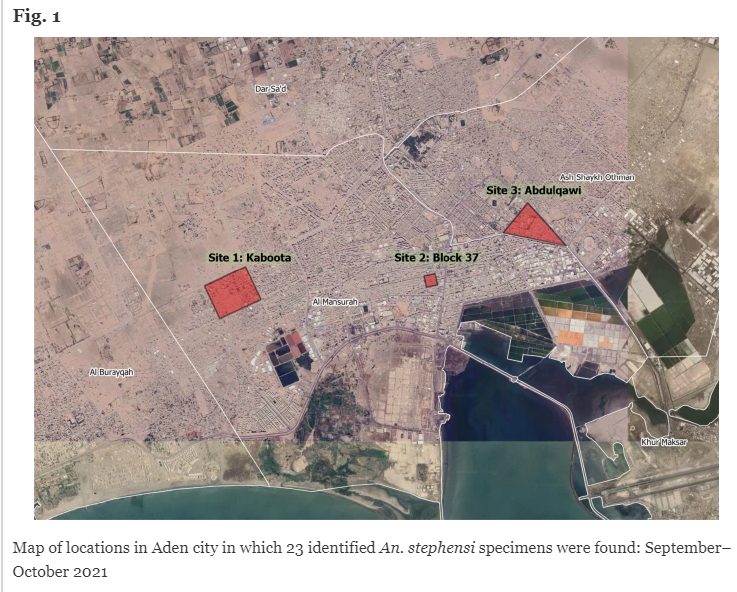A MENTOR-led entomological study in Internally Displaced Persons camps in Aden, Yemen has confirmed the presence of Anopheles stephensi mosquito, which has significant consequences for malaria control and elimination within this vulnerable urban population.
Published in the Malaria Journal the study carried out in 2021 details how An. Stephensi is being established in the region and the risk this invasive disease vector will spread to similarly densely populated, fragile urban areas.
Lead author Richard Allan, The MENTOR Initiative CEO, said: “The threat posed by An. stephensi is similar to that of the Aedes mosquito which spreads diseases such as dengue and yellow fever*. Because both species breed and thrive in open water containers, it is vital to integrate water sanitation and hygiene measures with larval control to prevent further spread across the region and protect the millions of people at risk.”
*Read more about the similarities in MENTOR’s paper published in the Lancet Global Health titled: What sounds like Aedes, acts like Aedes, but is not Aedes? Lessons from dengue virus control for the management of invasive Anopheles

